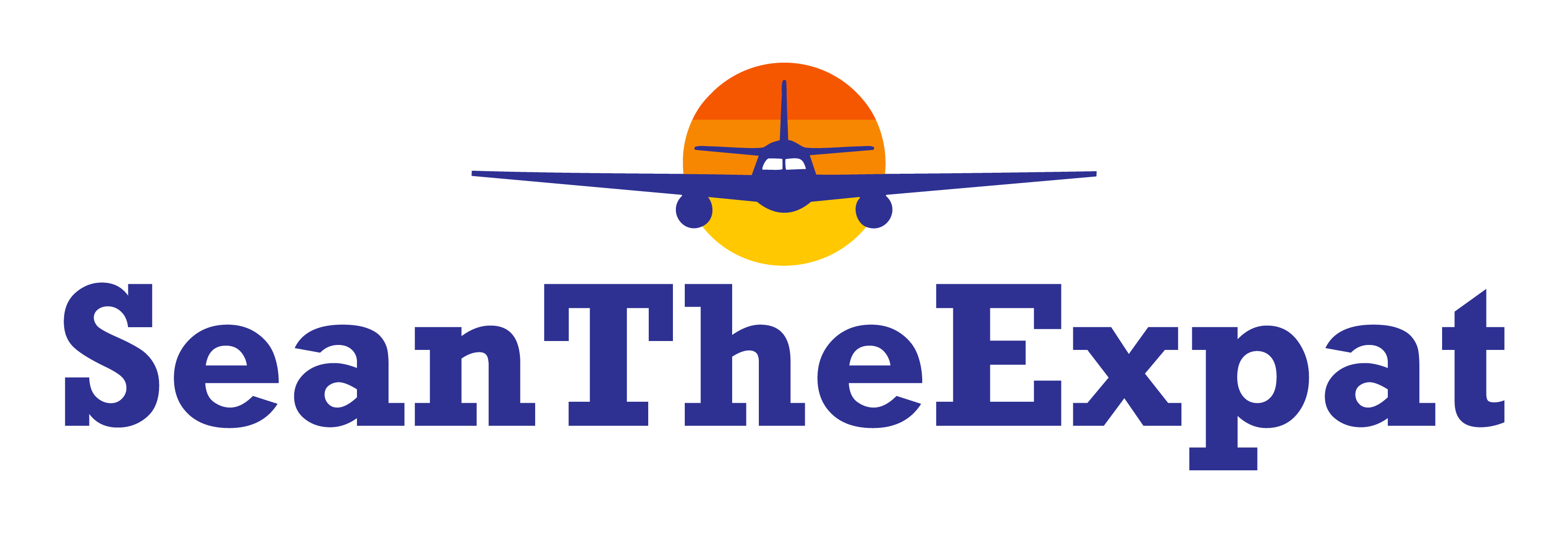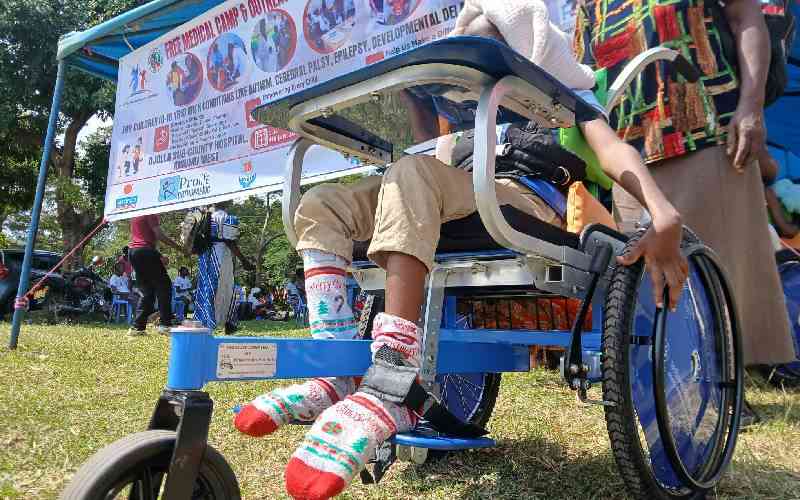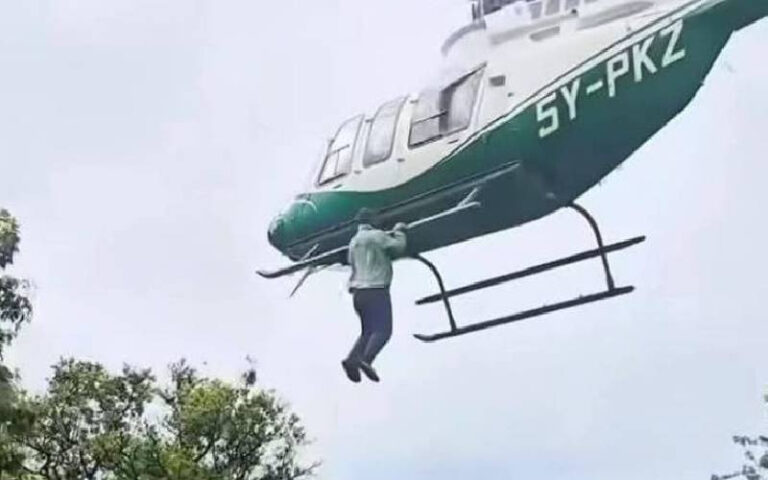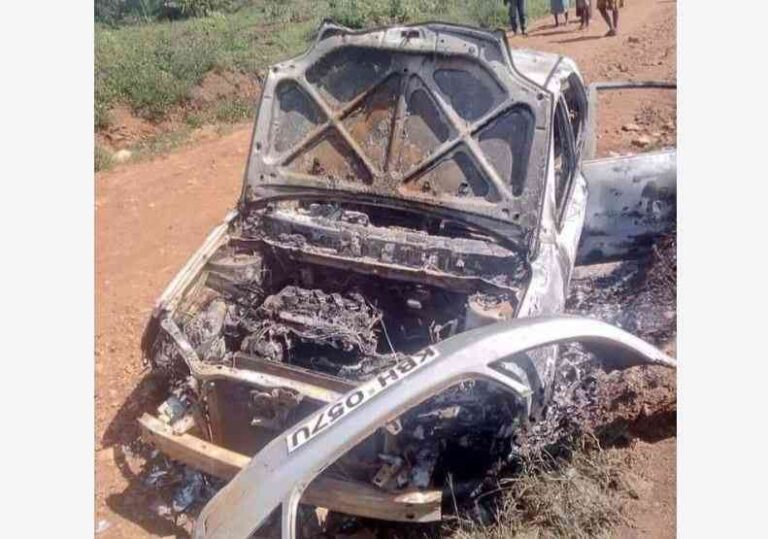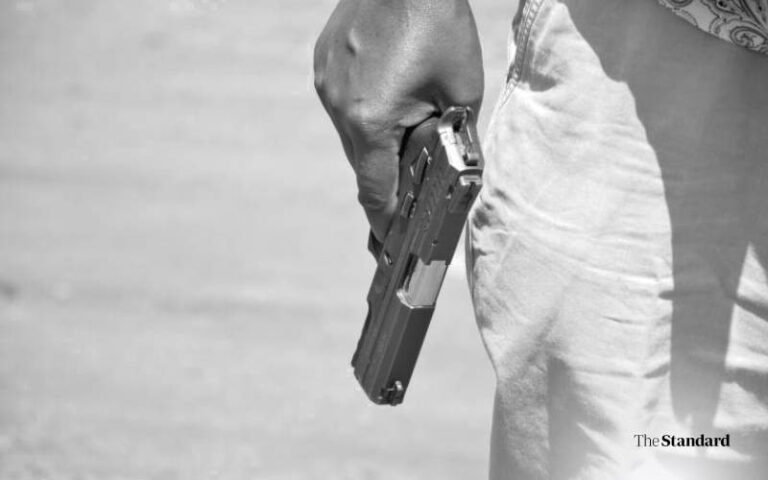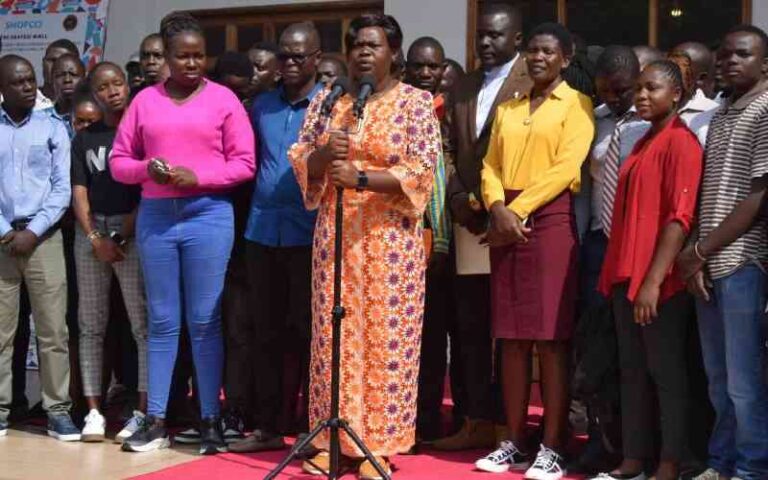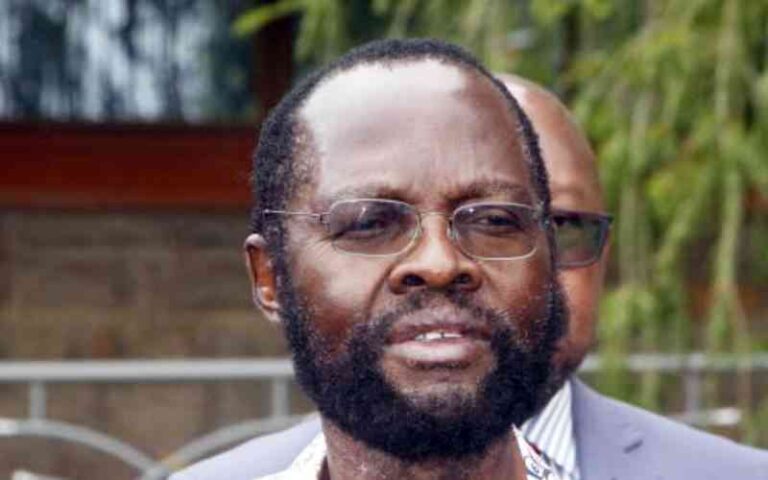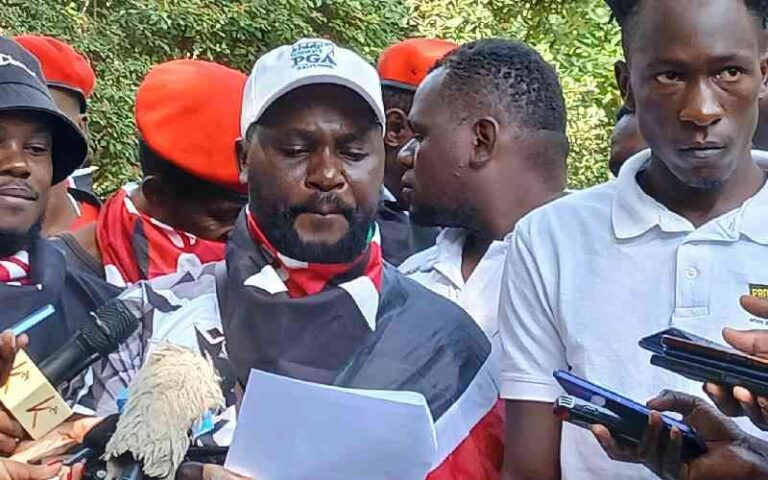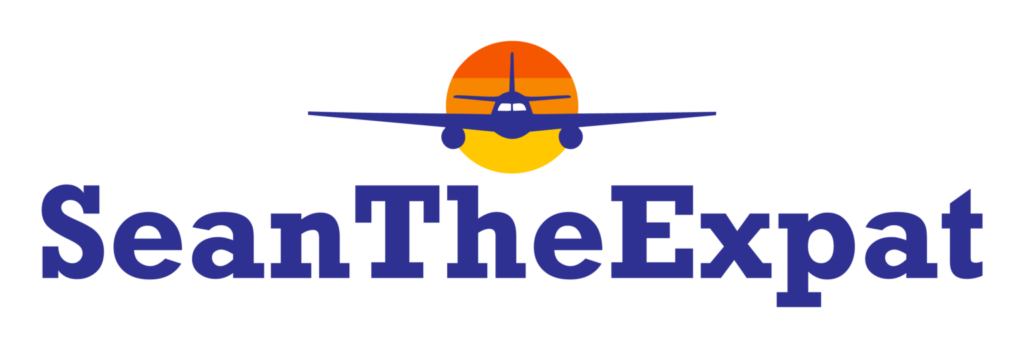Beyond blame: Hope for children with disability
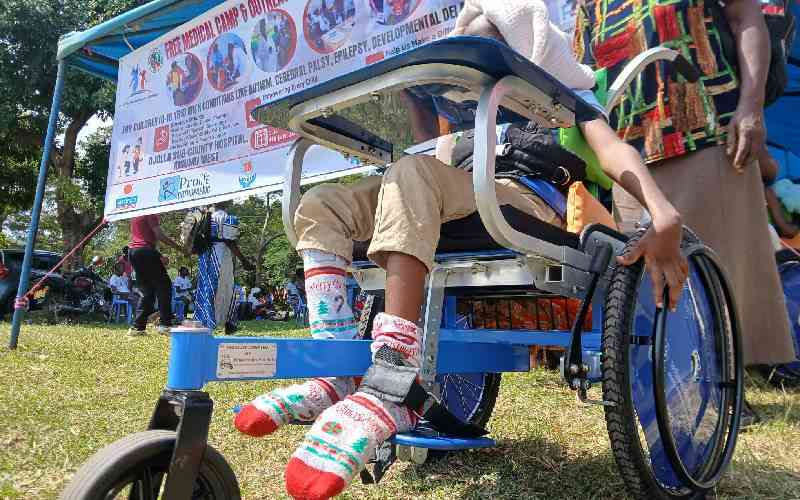
It’s 11 am in Kisumu West. I arrive at Ojolla Sub-County Hospital and immediately notice something different. Parents and guardians have gathered not in queues for consultations or medication but in a circle, drawn together by something deeper than routine. Their faces reflect fatigue, concern, but also hope. My curiosity is piqued, and soon I learn that they are here for a special free medical camp organised to support children with disabilities.
The camp, a joint initiative by Universal Lighthouse, ZUW Afya CBO, Prolife Orthopaedic and the Kisumu County Government, is offering a comprehensive range of services. These include medical check-ups, developmental screenings, therapy, assistive device fitting, nutritional assessments and free distribution of wheelchairs. The initiative targets children living with Cerebral Palsy (CP), epilepsy, developmental delays, sickle cell disease and other neurodevelopmental disorders that rarely get the attention they deserve in low-resource areas.
Globally, the World Health Organisation (WHO) emphasises that children with developmental disabilities are often left behind due to unmet care needs. A coordinated, holistic care plan, one that factors in cultural context, education levels and access to trained professionals, is essential. This medical camp is a rare but vital step in that direction, seeking to restore dignity and access to a group often ignored by public health interventions.
Among the crowd is Carolyn Adhiambo, 32, a mother of five from Kisumu West. She sits quietly, her son wrapped in a cloth sling on her back. The child is small for his age, his limbs stiff and unmoving.
“I gave birth to him in 2020,” Carolyn says. “He was my last-born, but the labour was different. Long, painful and strange. When I delivered, my son didn’t cry. The nurses became uneasy.”
The medical team suspected complications and referred her to another hospital. But a nationwide nurses’ strike was underway and the referral was unsuccessful. She returned home, uncertain and afraid. Later, the child began to cry, but the cry was not the strong, rhythmic sound of a healthy newborn. It was weak, irregular and continuous.
“I sensed something was wrong. I rushed him to a private facility,” she recalls. “That’s where they diagnosed him with CP.”
At the time, Carolyn had never heard of CP. The doctors tried to explain, but the words felt foreign and heavy. At four months, her baby wasn’t hitting milestones; no crawling, no sitting, no head control. Her husband’s support quickly faded.
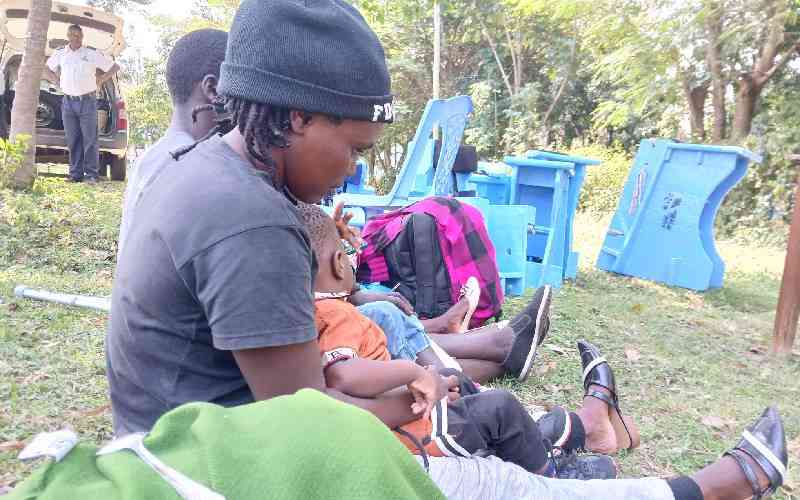
“He started blaming me,” Carolyn says. “He said I must have done something wrong. He called my child a curse and accused me of sleeping with a witch doctor. Eventually, he left.”
According to Dr Katherine Oyieke, a pediatric neurologist and specialist in childhood neurodevelopmental disorders, this is not uncommon.
“The term ‘cerebral’ refers to the brain, and ‘palsy’ refers to disordered or paralysed movement. Cerebral palsy is a group of neurological disorders caused by abnormal brain development or damage to the parts of the brain responsible for controlling movement, posture and balance,” she explains.
The damage often occurs before, during or shortly after birth. “Prolonged labour, oxygen deprivation, infections during pregnancy, bleeding in the brain, severe newborn jaundice can result in CP,” Dr Oyieke adds.
Children with CP often exhibit a range of symptoms: stiff or floppy muscle tone, exaggerated reflexes (spasticity), lack of muscle coordination (ataxia), involuntary movements (dystonia) and developmental delays in motor skills like sitting or crawling. Some may have intellectual challenges, seizures (epilepsy), scoliosis, speech and language difficulties and problems with fine motor skills such as buttoning clothes or holding objects.
Carolyn’s son, now four years old, cannot chew or sit unaided. “I mash all his food. I can’t afford diapers regularly. Therapy sessions are costly, but I survive by washing clothes for others. Still, I won’t give up,” she says.
She faced employment discrimination, stigma and isolation. “Some employers say we’re too demanding. They don’t understand that this wasn’t my choice. I just want my child to have a future.”
Despite everything, Carolyn remains hopeful. “Universal Lighthouse has helped me a lot by offering therapy, mental health talks and a shoulder to lean on. That’s why I came to today’s camp.”
I also met Belden Otwane, 36, from Maseno, another mother raising a child with CP. Her son was born in 2024.
“I had prolonged labour. Then it suddenly stopped. When I finally gave birth, my son didn’t cry for almost 30 minutes,” she says. “I thought he was gone.”
The doctors diagnosed him with CP and placed him in the nursery. “He’s stiff. He doesn’t crawl, sit, or chew. But I accepted it. I’ve learned a lot.”
Belden relies on therapy and assistive devices provided by Universal Lighthouse. “These forums are very helpful. My son is slowly improving. He can now recognise familiar faces,” she says.
Yet, like Carolyn, she struggles with social stigma. “People ask hurtful questions like, ‘Kwani mtoto wako ako aje hivi?’ Some friends have distanced themselves from us. My husband stayed, but society hasn’t.”
Dr Oyieke explains that CP is non-progressive. “The brain damage occurs once, and it doesn’t get worse with time. However, as children grow and their bodies change, the symptoms may become more pronounced. This isn’t deterioration; it’s the natural result of ageing with a neurological condition.”
She emphasises the critical importance of early diagnosis. “Thanks to developmental assessments, CP can now be diagnosed within the first year of life. Early intervention is vital as it helps the child’s brain develop compensatory pathways, which significantly improves their quality of life.”
Dr Oyieke outlines available interventions: physical therapy to improve muscle strength and mobility; occupational therapy to help children perform daily tasks; recreational therapy for intellectual growth; and speech therapy to assist with communication. Assistive devices like walkers, braces and communication tools can make life easier. In severe cases, orthopaedic surgery may help realign limbs or reduce muscle stiffness.
Unfortunately, in Kenya, access to such care is highly unequal. “Most services are concentrated in major cities and in private facilities,” Dr Oyieke says. “In rural communities, there’s a critical shortage of pediatric neurologists, MRI machines, EEGs and therapists. Public hospitals simply aren’t equipped.” That’s why this camp is so important for mothers like Carolyn and Belden, who otherwise have nowhere to turn to.
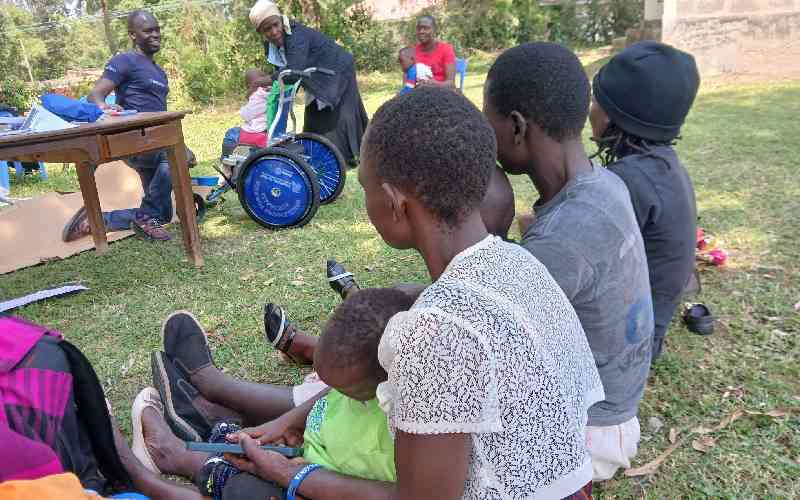
George Odhiambo, Regional Director of the National Council for Persons with Disabilities (NCPWD) in Nyanza, echoes the concern. “Being disabled is not a choice. But many still treat it like a curse. We’re here to change that.”
He points to the Persons with Disabilities Act, 2025, signed into law just two months ago. “It aligns with the Constitution and the UN Convention on the Rights of Persons with Disabilities. Disability rights are human rights. We now have a legal framework to protect and promote inclusion,” he says.
Odhiambo warns that organisations will now face annual audits to ensure compliance with the law, including the 5 per cent employment quota for persons with disabilities. “It’s no longer business as usual,” he adds. “Those who discriminate will face legal consequences.”
Emily Aketch, director and founder of Universal Lighthouse, says the organisation also works to dispel myths around disability. “Some families still hide their children at home. They fear judgment. We run sensitisation programmes to break this stigma,” she explains.
“The cost of devices is overwhelming. A basic prosthetic can cost over Sh50,000. An above-knee one is about Sh100,000. How can families like Carolyn’s afford that?”
Olive Oudu, Disability Coordinator for Kisumu West, says the medical camp follows a feasibility study that found an unusually high number of children with disabilities in the region.
“We are offering everything from therapy and mental health counselling to nutrition and speech therapy. These children have complex needs. You can’t treat one thing and ignore the rest,” she says.
Dr Oyieke notes the psychological burden CP places on families. “Research shows high levels of depression and anxiety among caregivers, especially mothers. Their lives revolve around feeding, therapy, hospital visits and financial stress.” These are women who’ve been pushed to the margins of society, yet carry the strength of warriors.
Carolyn and Belden are not alone. They represent thousands of mothers across the country fighting, surviving and hoping. Their stories are painful reminders that while cerebral palsy is a medical condition, the real battle lies in access, stigma and society’s silence. And in this silence, one truth rings clear: Disability is not a curse. It’s a condition. And every child, regardless of ability, deserves a chance to thrive.
Join Us
